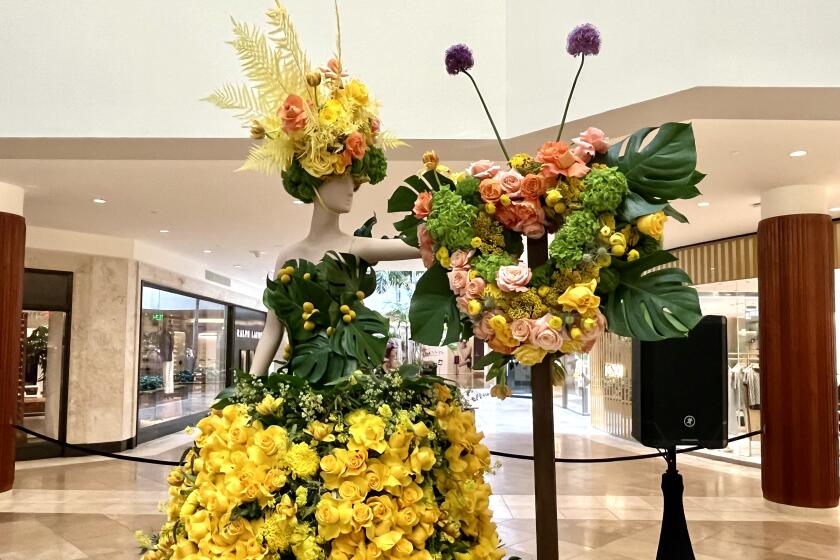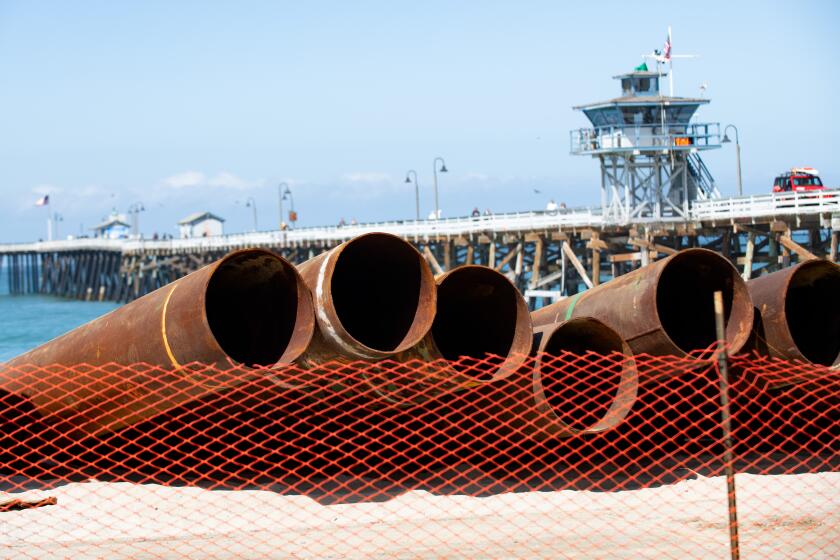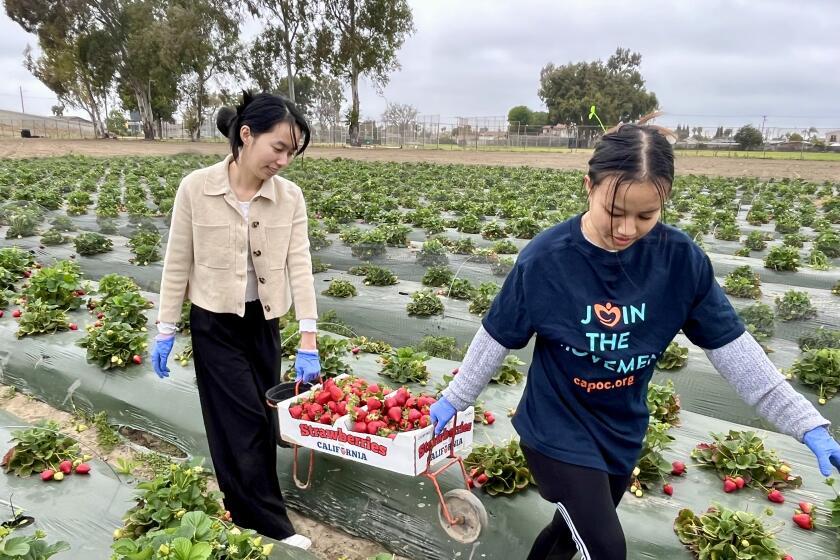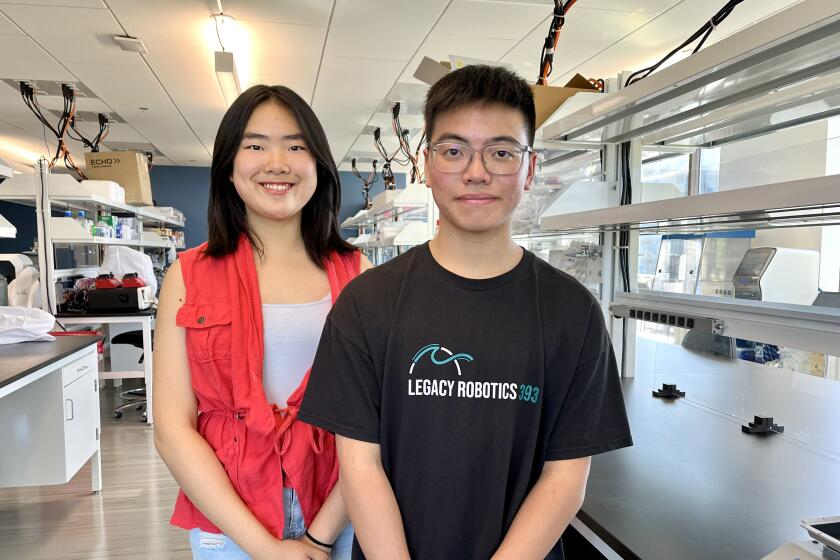Garden Grove family wins battle with government bureaucracy in effort to get life-saving treatment for mother
At 3:30 p.m. Wednesday, Yvonne Murray got the call that could save her mother’s life.
“[U.S. Rep. Alan] Lowenthal (D-Long Beach) called me personally from Washington, D.C., and said, ‘The humanitarian parole has been approved. Your aunt has permission to come,’ ” said Murray. “We’re so excited — everything has happened so fast.”
For the record:
9:04 p.m. April 24, 2024A previous version of this article referred to a press secretary for Sen. Kamala Harris (D-Calif.) as Brenda Harris. The press secretary is Brenda Gonzalez.
It all started in February, when Murray’s mother, Helen Huynh, 61, was diagnosed with acute myeloid leukemia, a rare form of blood cancer.
Doctors told the family that a stem cell transplant was the only way to save her life. A close genetic relative would be the likeliest donor match.
Huynh’s three sisters were tested, and in May, the family discovered that one, Thuy Nguyen, who lives in Vietnam, was a rare 100% match.
Murray and her family, who all live in Garden Grove, helped their aunt apply for a visa to come to California for the life-saving procedure. But to their surprise, she was denied.
The given explanation, according to Murray, was that Nguyen provided insufficient evidence that she would return to Vietnam after her stay, even though she submitted proof that she owned a business and had young children back home.
The family thought the rejection a fluke and applied for another visa.
Again they were denied.
They tried a third time, and were denied yet again.
“We started panicking,” said Murray.
In August, Murray and her family, who are all U.S. citizens, applied for humanitarian parole from U.S. Citizenship and Immigration Services (USCIS), a last-chance attempt to get her aunt to California on the basis of “urgent humanitarian reasons.”
Throughout August and September, the family anxiously waited for a decision from the federal government. As they waited, Huynh’s medical conditioned worsened.
The only communication they received during that time was a request for additional evidence by a Dec. 27 deadline.
“They just don’t understand the sense of urgency,” Murray said Tuesday, “because my mom will be long buried by Dec. 27 without the stem cell transplant.”
The Huynhs looked to local politicians and advocacy groups.
U.S. Sen. Kamala Harris (D-Calif.) reached out to the Department of Homeland Security about the application for humanitarian parole. Her office also contacted the State Department about the case, according to Brenda Gonzalez, a press secretary for Harris.
In addition, Murray said Lowenthal and Rep. Lou Correa (D-Santa Ana) were instrumental advocates.
Asian Americans Advancing Justice also put out a sign-on letter “strongly urg[ing]” U.S. Citizenship and Immigration Services to grant humanitarian parole.
“We are extremely alarmed that the life of an American citizen and immigrant from Vietnam hangs in the balance because of multiple delays in the granting of legal permission for a stem cell donor to enter the United States,” the Sept. 21 letter said.
Some of the more than 60 organizational signatories included Catholic Charities of Orange County; the Council on American-Islamic Relations, Greater Los Angeles Area; Japanese American Citizens League; Korean Resource Center; Orange County Asian American Bar Assn.; and the Orange County Asian and Pacific Islander Community Alliance.
“It’s outrageous because you have a woman who has a really great shot at recovering and being treated, but because of the immigration bureaucracy and political opinions of who should be let into this country, we have a woman who’s dying, probably, in Orange County,” said Karin Wang, vice president of programs and communications for Asian Americans Advancing Justice, Los Angeles said on Tuesday.
“The story feels really personal to people on our staff, and in our community, because it could be any one of us in this situation,” she said.
Murray, who is one of three daughters, described her mother as a “really generous person” who loves gardening and would spend two hours at the gym each day.
“Anybody who walks through the door, she always makes sure to feed them,” she said.
The family came to the United States after the Vietnam War, when Murray’s father, Vien Huynh, served in the South Vietnamese Army alongside the Americans. Murray said her mother always felt a sense of “indebtedness” to Americans for taking in their family.
Until her illness, Huynh had also been the full-time caregiver for her 25-year-old daughter, Tiffany, who has Down syndrome.
Murray said her family now spends their days with Huynh at UCI Medical Center in Orange.
“My whole family does our best to provide 24-hour coverage at the hospital,” said Murray, explaining that without white blood cells in Huynh’s body, any infection could be fatal. “My sister usually takes the morning shift, I take the late afternoons, my dad takes the overnight shift, and we have a couple cousins who connect in the middle.”
Murray, who works as a hospice liaison, also started preparing for the worst, telling her father to start looking into funeral arrangements “just in case we need it.”
But on Tuesday night, Murray said that her mother’s doctors notified them that Huynh was free of cancer and that she had a “very small window” to do the transplant.
“I emailed all the public offices, Kamala Harris, Lou Correa and Alan Lowenthal,” said Murray. “I told them my mom is in a very small window, and we need my aunt here ASAP. They got back to me and said, ‘We got your email, we understand that she needs care right now, we’re pushing it.’ ”
Hours later humanitarian parole was granted.
“Under the law, USCIS can allow individuals outside of the U.S. into the country temporarily for urgent humanitarian reasons, which may include to address an urgent serious medical condition,” said Claire Nicholson, a USCIS spokeswoman. “We exercise this important authority on a case-by-case basis, taking into account the circumstances of each particular case and recognizing the impact our decisions can have on people’s lives.”
After receiving news of the decision, Murray quickly started packing, and late Wednesday night she boarded a flight to Vietnam, where she’ll meet her aunt and accompany her back to California.
“We felt that not only were we fighting a horrible thing called cancer, but we were also fighting the denial from the U.S. government,” said Murray. “Now half of the battle is over, and we can just concentrate on fighting the cancer itself.”
CAITLIN YOSHIKO KANDIL is a contributor to Times Community News.
All the latest on Orange County from Orange County.
Get our free TimesOC newsletter.
You may occasionally receive promotional content from the Daily Pilot.



